45 Billion Words and Counting
One of the largest woman-owned LSPs in the world, creating global connections through language and technology solutions.
- 214 Countries
- 170+ Languages
- 60M Translations
- 80K Companies
Akorbi's language technology and services are designed to empower your business and drive its growth by enabling you to tap into the vast potential of the global market. With our advanced language technology platforms, we break down barriers to communication and help you connect with diverse audiences worldwide.
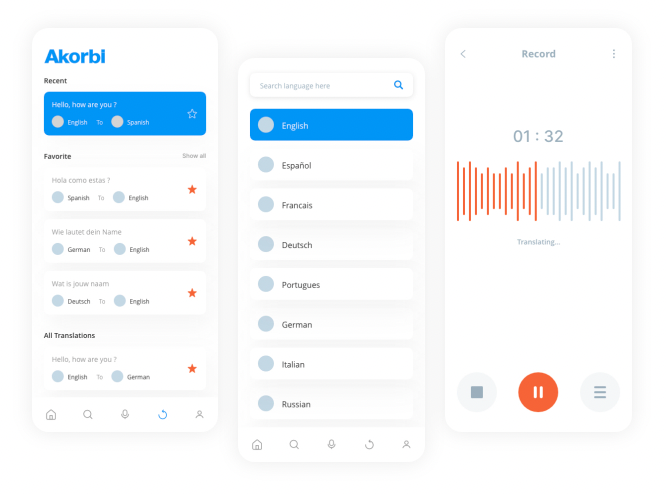
Tailoring your content for your target market is essential for building strong customer relationships. With our translation and localization services, your content will be expertly curated for any language or location, bringing a truly customized experience to your audience.
ExploreWhen you’re looking for innovative tactics to drive new business across markets, our multilingual customer support division can handle core functions in your target audience’s native language.
ExploreBegin communicating across language barriers in real time with a tech-enabled interpretation offering that can meet your interpretation needs for any industry anywhere in the world—in more than 170 languages.
ExploreAkorbi's advanced technology offerings help businesses eliminate language barriers and improve processes. Check out our full list of offerings here!
ExploreOne of the largest woman-owned LSPs in the world, creating global connections through language and technology solutions.
Akorbi stands out with its tech-enabled solutions, ISO-certified secure management systems, global footprint, and commitment to diversity. We empower businesses with our cutting-edge platforms, global language services, and inclusive approach, all designed to drive multilingual digital transformation.
Akorbi, the home of both RunMyProcess and the ADAPT portal, uses technology to transform businesses. Our AI-driven solutions enable automation, integration, and instant access to 170+ languages, driving your journey towards Multilingual Digital Transformation.
As an ISO 27001, ISO 13485, ISO 17100 and ISO 9001-certified company, Akorbi offers tech-powered, reliable, and high-quality services. Our commitment to continuous improvement underscores our promise of secure and compliant solutions.
From Texas to India and points between, Akorbi operates globally. We use tech to serve regulated industries across continents, with a global network of over 700+ team members and 4,000+ contractors.
Akorbi, a proud woman and minority-owned business, values diversity and inclusion. This commitment is embedded in our tech-driven operations and global client relationships, enhancing our solutions' richness.
Every industry has its own unique terminology. We make sure your message comes across the right way. Whether you’re looking for healthcare support in Berlin or technical document translation in Bangkok, Akorbi has you covered. View our industry solutions below, or click here to view all industries we serve.
We offer language services for the financial industry, including multilingual customer support, financial document translation, and software localization, facilitating global expansion, improved communication with international clients, and regulatory compliance.
ExploreWe provide comprehensive language solutions for the healthcare industry, offering services such as precise medical document translation, culturally nuanced localization of patient interfaces,…
ExploreWe offer comprehensive intellectual property and patent translation services, including specialized expertise in complex technical concepts, legal terminology, and streamlined workflow…
ExploreWe offer comprehensive language solutions for the life sciences industry, including precise translation of clinical trial documents, targeted localization for global markets, interpretation services for FDA meetings, and advanced workflow automation through our low-code platform for streamlined regulatory compliance and efficient clinical trial management.
ExploreWe offer specialized language solutions for retailers, including accurate translations, localized content, multilingual customer support, and technology integrations, enabling global expansion, international brand consistency, and efficient management of product descriptions, website content, and customer inquiries.
ExploreWe provide comprehensive language solutions for technology companies, offering services such as software UI localization, AI training data translation, conference interpretation, and…
ExploreWe strive to provide our clients with the highest-quality language services and game-changing technology, and we’re proud to share that our efforts have been recognized time and again.

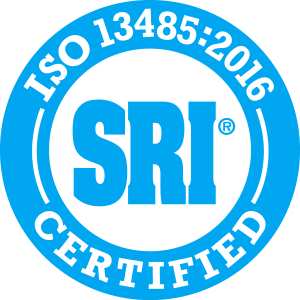
ISO 13485:2016
Certification: ISO 13485:2016
Certification body: SRI
About ISO 13485: ISO 13485:2016 specifies requirements for a quality management system where an organization needs to demonstrate its ability to provide medical devices and related services that consistently meet customer and applicable regulatory requirements.

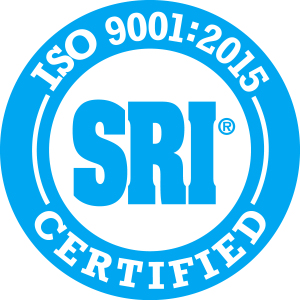
ISO 9001:2015
Certification: ISO 9001:2015
Certification body: SRI
About ISO 9001: ISO 9001:2015 specifies requirements for a quality management system.

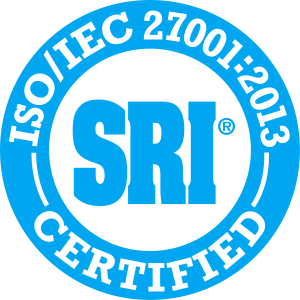
ISO 27001
Certification: ISO 27001:2013
Certification body: SRI Quality System Registrar
About ISO 27001: ISO 27001 is the international standard for information security management system for continuing conformance to information security requirements. To know more about this standard, click Learn More below.


Dallas 100
For 30 years, the Caruth Institute for Entrepreneurship at the SMU Cox School of Business and the Dallas 100TM sponsors have celebrated the innovative spirit, determination and business savvy of area entrepreneurs. We have saluted the diversity, creativity and resolve it takes to create and sustain a successful business in today’s competitive environment.
Learn More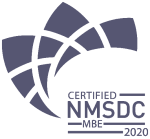
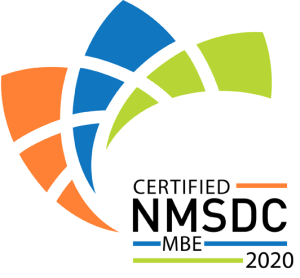
Minority Business Enterprise
Certification: MWBE Minority Business Enterprise
Certification body: State of Tennessee
Objective: Certified to perform business at the state of Tennessee level as a Minority Business Enterprise.


Proud Sponsors of Translators Without Borders
Translators without Borders is a nonprofit working toward a world without language barriers.
Learn More
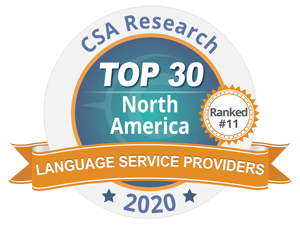
CSA Research
Common Sense Advisory (CSA) Top 30 NA Language Service Providers Rankings:

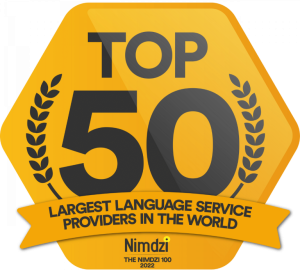
Nimdzi Insights
Nimdzi is a market research and international consulting company that works towards
providing clients with the insights needed to succeed on a global scale.

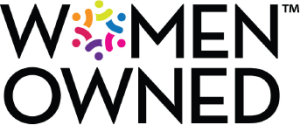
Women Owned
Certification: Women-Owned Enterprise
Certification body: North Central Texas Regional Certification Agency
Objective: Certified to perform business at the local government level as a MWBE.

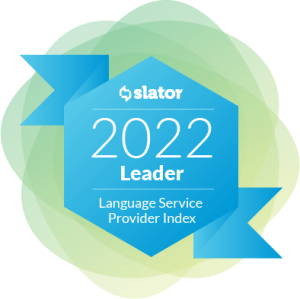
Slator LSP Index
The Slator 2020 Language Service Provider Index is a ranking and index of the world’s largest language service providers, translation agencies, localization providers, interpreting services providers, and language technology companies.


Staffing Industry Analysts (SIA) Corporate Member
Certification: Corporate Member
Certification body: Staffing Industry Analysts
Objective: To be part of a group of industry leaders and experts in the staffing and workforce solutions space.


50 Fastest Women-Owned / Led
Certification: Women-Owned Enterprise
Certification body: Women’s Business Enterprise National Council – Southwest
Objective: Certified to conduct business as a woman-owned business.
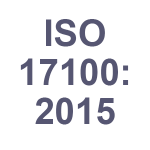
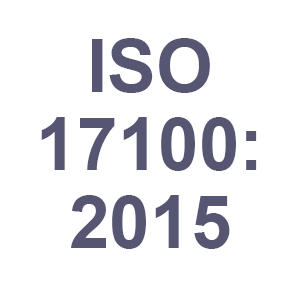
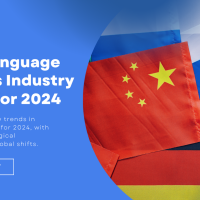
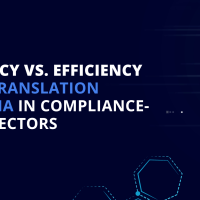
We know that nothing beats direct communication. Send us a few details, and we’ll get the conversation started.
Search